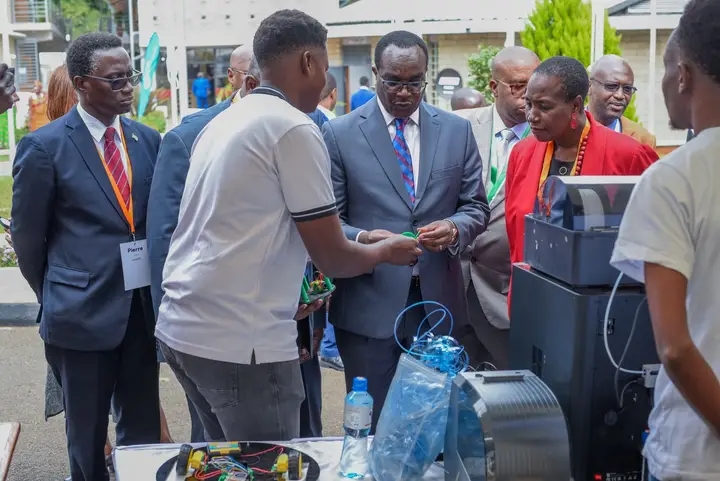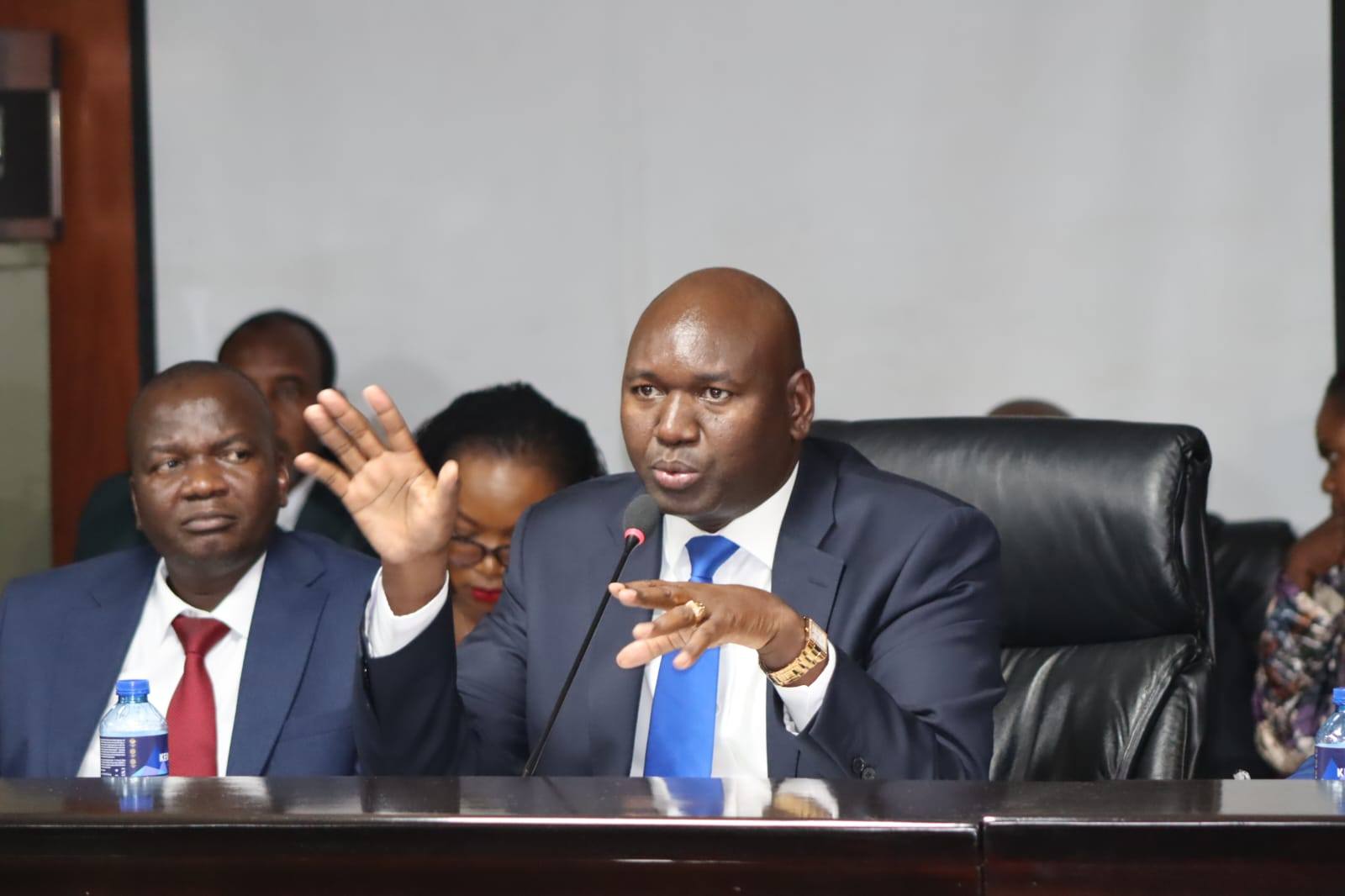The African Union’s Agenda 2063 envisions a peaceful, integrated and prosperous continent, led by its own people and actively shaping the global future. At the core of this vision is the role of science, technology, and innovation in driving sustainable development, industrial growth, and economic resilience.
In support of this goal, the STEMtastic Adventures Africa 2025 symposium officially opened at the Centre for Mathematics, Science and Technology Education in Africa (CEMASTEA) in Karen, Nairobi. The event, which runs from July 22 to July 25, brings together participants from more than 20 African countries. Among these are five ministers, senior government officials, policymakers, innovators, educators, and learners who have convened to reimagine the future of STEM education across the continent.
The Cabinet Secretary for Education, Julius Migos Ogamba, presided over the opening ceremony. He was accompanied by the PS for the State Department for Basic Education, Prof. Julius Kibet Bitok. The CS emphasized Kenya’s commitment to aligning education with the needs of the Fourth Industrial Revolution, saying the country is focused on producing learners who do not just consume knowledge but also create it. He highlighted that Africa is home to a growing youth population and must invest in equipping them with future-ready skills through science and innovation.
ALSO READ:
Over 25,000 promoted teachers still await TSC letters months after official list was released
The four-day symposium focuses on promoting sustainable STEM education by embracing innovation, collaboration, equity and inclusion. Hosted in partnership with AUDA-NEPAD and the mEducation Alliance, the event provides a platform for exchanging practical and evidence-based STEM approaches tailored to African contexts.
Among the key features of the symposium is the STEM Village, an interactive exhibition space where learners and teachers are showcasing hands-on projects and inventions. These range from solar powered engineering models and water purification systems to AI-driven learning tools and climate smart agricultural solutions. These demonstrations reflect Africa’s ability to generate homegrown solutions to local challenges.
The symposium also features ten thematic tracks, covering areas such as robotics, green technologies, gender-inclusive STEM, indigenous knowledge, artificial intelligence and refugee education. Sessions are designed to encourage collaboration among education ministries, NGOs, researchers, development agencies and practitioners to build scalable and inclusive STEM programs.
ALSO READ:
KNUT Kibwezi welcomes new CBA, urges patience on salary details
Policy and partnership dialogues have been organized to help countries develop strong frameworks that embed STEM as a national education priority. These discussions are aimed at addressing systemic challenges, promoting inclusivity, and ensuring that innovations reach underserved and marginalized communities.
As the symposium continues, organizers have expressed the intention to make STEMtastic Adventures Africa a recurring event hosted in different African countries. They hope to use the symposium’s final communiqué to track progress and inspire continued continental cooperation in STEM development.
By fostering regional collaboration and showcasing impactful STEM practices, the event positions Africa to harness its demographic strength and technological potential for a more innovative and resilient future.
By Benedict Aoya
You can also follow our social media pages on Twitter: Education News KE and Facebook: Education News Newspaper for timely updates.
>>> Click here to stay up-to-date with trending regional stories
>>> Click here to read more informed opinions on the country’s education landscape






